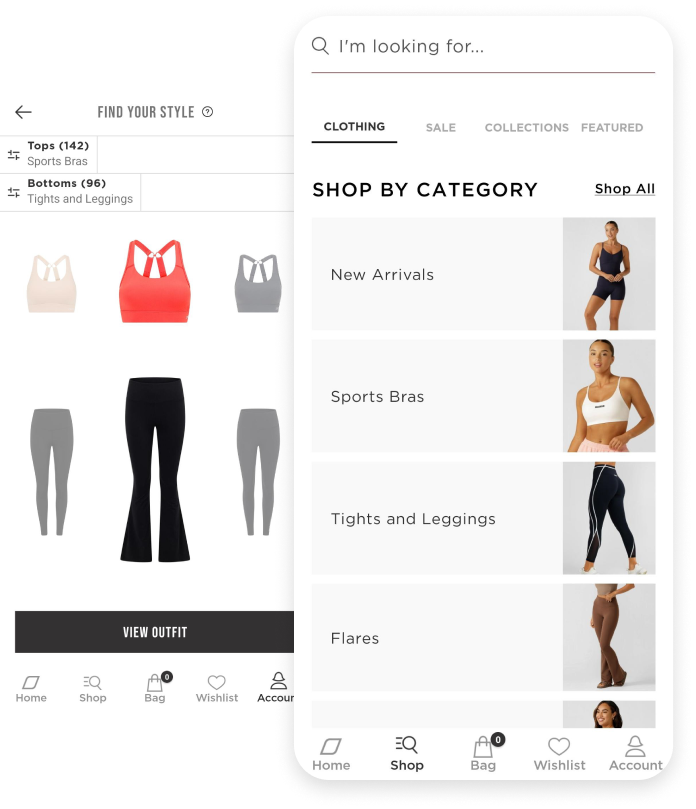Get Mum's gifts delivered in time! Express Shipping cut off ends Tuesday.
Shop Now
Download the App and Log In For 25% Off Full Price Styles. T&C's Apply.
Download Now
Free Standard Shipping with orders over $99!
Build your wishlist, get exclusive early access, login and checkout faster, plus discover Mix & Match.

Designed by women, for women, Lorna Jane is an Australian activewear brand that lives to inspire women around the world. Our elevated and performance-focused women’s activewear, gym clothes, workout clothes & accessories have all been consciously designed to help women feel empowered, supported and beautiful at all times when wearing their Lorna Jane activewear
We create to inspire, we create to encourage & we create to live. With innovative design & exclusive fabric technology, Lorna Jane activewear has been created for women to emanate wellness & positivity in all aspects of all activities.
Committed to delivering the best women’s activewear in Australia and beyond, Lorna Jane activewear has been engineered with over 30 years of innovation as well as our extensive fit and fabrication testing. From our team of designers, right through to our dispatch teams, so much love and care goes into our products & what we create. Our proprietary Lorna Jane fabric technology is performance-driven with unique formulas engineered to enhance the way you move. So, you can elevate and enhance your exercise routines and your every day. From adjustable straps to cooling fabrics, our Lorna Jane women’s activewear range is here to support you be the best version of yourself, one step at a time.
Our proprietary Lorna Jane fabric technology is performance-driven with unique formulas engineered to enhance the way you move. So, you can elevate and enhance your exercise routines and your every day. From adjustable straps to cooling fabrics, our Lorna Jane women’s activewear range is here to support you be the best version of yourself, one step at a time
At Lorna Jane, we embrace the ethos of ‘active living’ through the aspects of wellbeing, health and fitness. Each woman’s activewear piece we design, aims to empower women to live an active life by feeling comfortable in their own skin and how your body moves. With active wear for all activities, fitness levels and styles, find your perfect piece with Lorna Jane. Our women’s activewear, gym clothes, workout clothes and gym accessories can form the foundations of your athletic and apparel wardrobes with classic pieces in neutral tones. Or they can complement your athleisure look with bold colours, prints and patterns to inspire and excite
Feel confident in your body with Lorna Jane women’s activewear, designed to move with you. Explore out our range of best selling sports bras, tops, loungewear, tights and leggings from Australia's leading women's activewear brand and find the quality workout clothes and gym clothes that you’ve been looking for.
Lorna Jane activewear is all about inspiring and keeping up with your active life. Whether you're stretching out in a yoga class, making a splash at the pool, or serving your best on the court, our active wear has you covered. We also have cosy tracksuit pants for lazy days and fleece tights & leggings for chilly mornings. Our bike shorts are a must have for joggers and a new pair of flared leggings add a fashion-forward twist to any outfit. And don’t forget the little things – like comfy socks and stylish gym bags. With Lorna Jane, you’re ready for active living.